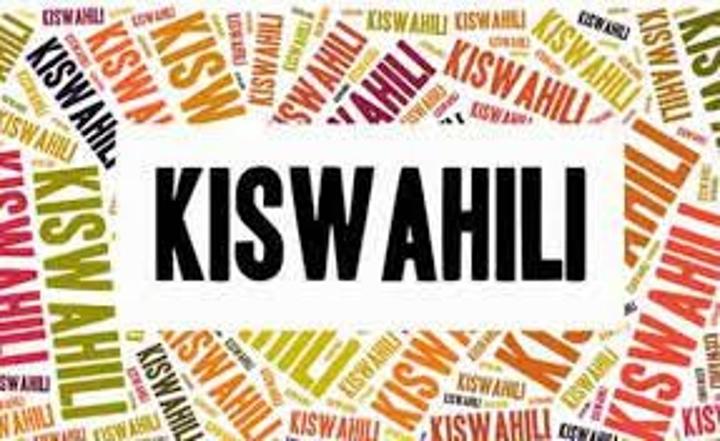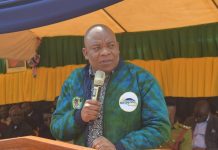Africa-Press – Tanzania. Swahili is the native tounge of the Swahili people. The Swahili people also known as Waswahili are the bantu ethnic group Swahili is the most widely spoken language in sub -Saharan Africa. It spoken by approximately 50 million people in Tanzania, Kenya, Uganda Rwanda, Burundi, Eastern Congo DRC, the Comoros and marginally, in Northern Mozambique, Southern Somalia, northern Malawi and northern Zambia.
Swahili is a national language in Tanzania, Kenya and Congo DRC. It also has official status on Tanzania ,Kenya and Uganda (along with English). To learn Swahili language first we learn alphabet.
In Alphabet there are two things.that is Vowel and Consonant. Vowel in Swahili language vowels is characterized by Five simple vowels. /a/,/e/,/I/,/o/,/u/.as in ua (flowers), oa (Mary), au (or). Also there is Baba (father)
,Mama ( mother), kaka (brother),dada (sister). And there is kimbia(run), tembea (walk).
Swahili uses mostly a consonant + vowel + consonant + vowel. Swahili is among the easiest language to learn over the world’s language, this is due to the fact that you Pronounce a word as you write it.
Consonant
In Swahili we have 19 consonant that is /be/,/che/,/de/,/Fe/,/ge/,/he/,/je/,ke/,/Le/ ,/me/,/ne/,/pe/,/re/,/se/,/te/,/ve/,/we/,/ye/,na /ze/.in Swahili we don’t have q and x.
When you pronounce these consonant the sound /e/ is your guide as long as it is attached to e consonant s.so your pronounce with/e/ sounds. Now we are going to look for our first topic. And this topic is called self introduction
SELF INTRODUCTION
This is so important to someone to introduce his or her self.As a student it is essential to know some important words which Will be helpful in self introduction. Here all important grammatical parts will be utilized. The Swahili phrases will have direct translation or word to word translation together with the communicative translation which will give the equivalent meaning in English.
Jina langu ………….
Name my =direct translation My name is =communicative translation There is another way to say the same thing
Ninaitwa……………
I (subject prefix for first person singular) present tense Maker (na)passive voice call (itwa) = Direct translation I am called =communicative translation
In introducing your self “jina langu ni “and ninaitwa are used interchangeable .but in Informal setting or you can say in daily life situation people prefer “Ninaitwa”
Compared to jina langu which is used in every formative occasion s. Mimi ni Mtanzania I ( first person pronoun singular)is (auxiliary verb) Tanzania (singular)
=Direct translation. I am a Tanzania=Communicative translation. Mimi si Mtanzania I(first person pronoun singular)si (not) Tanzania=Direct translation I am not a Tanzania =Communicative translation
Jina lao ni ………….
Name(jina) their (Lau) is (ni)≠Direct translation. Their name is communicative translation We will continue next time
Source: Daily News – Tanzania Standard Newspapers
For More News And Analysis About Tanzania Follow Africa-Press







